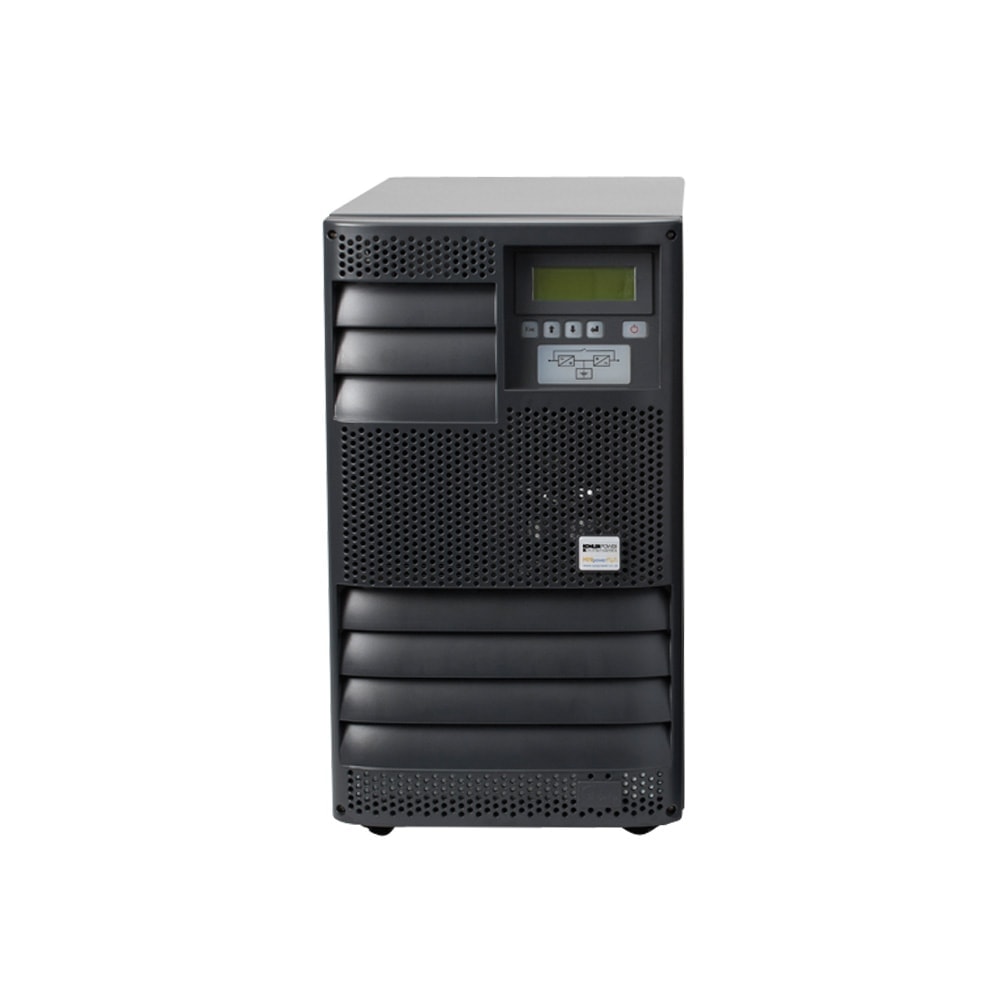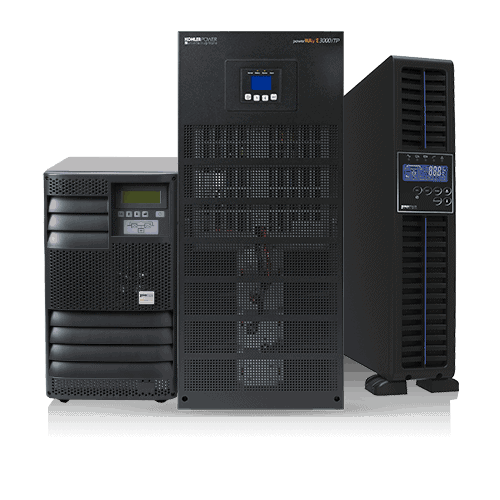Mentioning ‘Uninterruptible Power Supply’ usually evokes an image of a large-scale installation providing kW or even MW protection for a data centre. While this image is certainly valid, many much smaller applications have an equally critical requirement for the protection a UPS provides.
In this article, Alex Emms, Operations Director at KOHLER Uninterruptible Power Ltd., a KOHLER company, looks at the UPS options available for small and medium businesses – showing both the similarities and the differences in the criteria for these UPS and for their larger data centre counterparts.
Shared Fundamental Concerns
A power failure in a bank’s data centre, which takes out ATMs, is an example of a major incident that may make the national headlines. By contract, a sudden power disturbance or loss to a single PC of satellite office server only affects a few users – yet the consequences for those users can be just as serious.
Smaller-Scale Divergence
Day-to-day operation of UPS equipment may have to be managed by office staff, space may be limited, and the demand for UPS power may fluctuate as a business grows.
These requirements are well recognised by UPS suppliers, many of whom offer a range of solutions from 1kVA or less, to up to 20kVA. These start from single-phase micro systems for supporting a single desktop PC, which can be plugged into a normal 13A mains outlet.
Although off-line types have the lowest cost, they are far from an ideal solution, as they do not provide protection from electrical noise, spikes or other potentially damaging events. During normal operation raw mains power, with all its potential problems, is delivered straight to the critical load. The only protection is the battery’s ability to take over if the mains power fails. By contrast, an online UPS electronics provides a permanent barrier between the raw mains and the critical load, ensuring protection from mains aberrations at all times. For models such as the KUP.’s MINIPower PLUS and KOHLER PW 1000, which include VFI in their protection, or Voltage and Frequency Independence, ensuring the UPS output is not affected by variations in input voltage or frequency.
UPS such as the KOHLER PW 1000 can also automatically manage the batteries’ end-discharge voltage, preventing their deep discharge during a prolonged power failure.
Smaller systems, same reliability and flexibility
Systems such as the MINIPower PLUS can also offer the same flexibility and reliability as their larger data centre counterparts. UPS capacity can be incremented by 1.25kVA at a time by plugging in UPS power boards, so N+1 redundant systems can be configured with minimal excess UPS overhead and cost. This also allows great flexibility, because if extra workstations are added, they can be accommodated, simply by plugging extra UPS capacity in. As an alternative arrangement, some systems can be paralleled for extra capacity or redundancy using a CANbus interconnection. High efficiencies of well over 90 per cent at 100 per cent load are available, together with near-unity power factors and low input current THDi, which is regardless of the load.
Summary
Small and medium sized businesses are driven by the same concerns and objectives as large data centres regarding UPS protection. Major concerns must be addressed whilst smaller-scale UPS should also meet the requirements of smaller environments, including flexibility to meet changing office needs.





